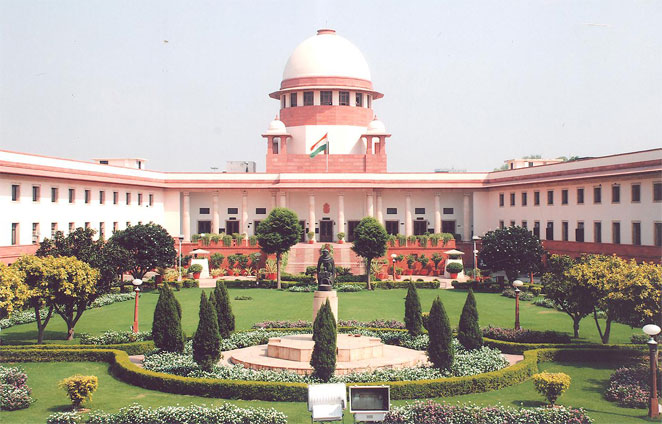New Delhi–The Supreme Court on Thursday paved the way for an all-India release for Sanjay Leela Bhansali’s “Padmaavat” on January 25 by staying the operation of orders banning the release of the film by the Gujarat, Rajasthan and Haryana governments. The film industry hailed the decision.
Staying the “notifications and orders” banning the release of the controversial film by the three states, Chief Justice Dipak Misra, Justice A.M. Khanwilklar and Justice D.Y. Chandrachud said the remaining states will not ban the screening of the film.
The Madhya Pradesh government too had announced a ban on the film, but not issued any official order on it.
 The court order came on a plea by “Padmaavat” producers — Bhansali Productions and Viacom18 Motion Pictures — challenging the ban on the screening of the film by the three states that didn’t want it to be screened over alleged distortion of historical facts.
The court order came on a plea by “Padmaavat” producers — Bhansali Productions and Viacom18 Motion Pictures — challenging the ban on the screening of the film by the three states that didn’t want it to be screened over alleged distortion of historical facts.
Referring to its earlier judgement, the court said it was incumbent upon the state governments to ensure law and order.
Making it clear that states can’t ban the release of a film cleared by the Central Board of Film Certification, the court said that “creative art can’t be guillotined”.
The court said that a film may “bomb at the box office” and people may not watch it but a state can’t ban it.
Appearing for one of the petitioners, senior counsel Mukul Rohatgi said that “State can’t be a super censor”.
Harish Salve appearing for Bhansali told the court that banning screening of a film is within the central government’s domain. Law and order is not a ground for blocking the release of a film. If states start banning the screening of a film cleared by CBFC then it would be “destructive of the federal arrangement”.
Additional Solicitor General Tushar Mehta appearing for Gujarat told the court that they have intelligence reports that screening of the film may lead to breach of peace.
Joining issue with Salve on the distortion of history, ASG Mehta said that “somebody showing Gandhiji drinking whisky is a distortion of history”.
As Salve counselled him to see the film on Jesus Christ (“Last Temptation of Christ”) Mehta said, “We go by Indian standards.”
At this Chief Justice Misra referring to the constitutional perception, statutory perception and tolerance said, “60 per cent of the literature, even classical literature can’t be read.”
In Bhopal, Madhya Pradesh Home Minister Bhupendra Singh said that “Padmaavat” continues to remain banned in the state and the government would take its next step in the matter after studying the Supreme Court order.
Film fraternity members Shyam Benegal, Manish Mundra, Madhur Bhandarkar and Ashoke Pandit were among those who lauded the Supreme Court decision.
Benegal told IANS that it’s “clearly a victory of freedom of expression” while filmmaker Pandit said: “It’s a very big success for the film industry.”
“This judgement has broken the arrogance of the political parties who banned the film thinking they can do it,” Pandit told IANS.
Producer Mundra tweeted: “Banning the film ‘Padmaavat’ even after CBFC certification was a cowardly act by the states. Were trying to do vote bank politics and or shying away from their responsibilities of managing law and order.”
Trade expert Komal Nahta said the judgement was “a tight slap on the faces of the states which banned the film”. “Red letter day … the film industry and lovers of cinema all over.”
Actor Ayushmann Khurrana hailed it as the “best news of the day which restores faith in our democracy”. Filmmaker Bhandarkar welcomed the decision for the movie, which features Deepika Padukone, Ranveer Singh and Shahid Kapoor.
Author Chetan Bhagat said it’s a “great decision” as “every story can’t be told how bullies want it”. Filmmaker Rohit Shetty hoped the movie gets a “great release”.
“Padmaavat”, which was earlier scheduled to release as “Padmavati” on December 1, is hitting the screens after facing multiple hurdles.
Bhansali was first assaulted on the film’s set in Jaipur last year, after which the film’s set in Kolhapur was vandalised.
Rajput outfits and some groups backed by the BJP have been actively protesting its release, contending that it plays with Rajput pride – something that the makers have repeatedly denied.
Bhansali has said the film is inspired by 16th century poet Malik Muhammad Jayasi’s poem “Padmavat” and that it’s a film Indians will be proud of. (IANS)














